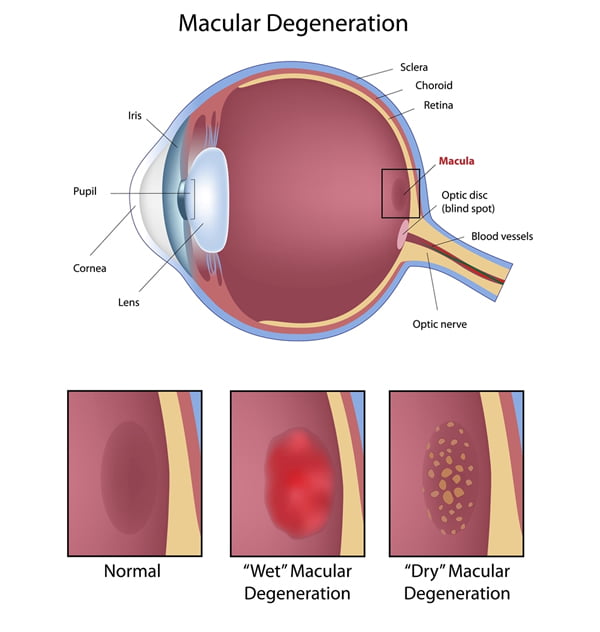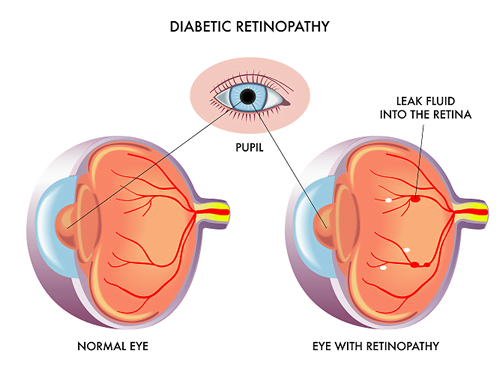
Wendell Stoelting, O.D.
Frequently Asked Questions
Dr. Stoelting has answered a few frequently asked questions from patients
Answer: “It is of great importance to your health to have regular eye exams. You may be able to see well, but that doesn’t mean your eyes are healthy. For example, there are numerous eye diseases (i.e. diabetic retinopathy, glaucoma, and macula edema) that attack vision very slowly and unnoticeably. However, if caught early, they can be treated.
One example is a disease called glaucoma. As a silent thief of sight, glaucoma can is a common eye disease that many people don’t know they have. The most common type is pain free and undetectable by the victim. Sadly, glaucoma is one of the leading causes of blindness in the United States. Vision loss due to glaucoma cannot be prevented or restored but, if it is treated early, it can be controlled.
There are a multitude of other reasons why consistent eye exams are important not only for your eyes but also your health in general. Please schedule an appointment to make sure you maintain good eye health."
Answer: “I desire to increase public awareness of the value of early detection of eye problems, proper eye care, and the need for eye safety. We hope that education and awareness can be translated into action to protect the precious gift of sight.
I can provide an examination that can spot the first symptoms of eye disease: visual acuity, retinal tears, diabetes, and developing cataracts. We are specifically trained to use certain drugs for diagnostic purposes such as drops (to dilate the pupils) or anesthetic (before tononmeter tests) for glaucoma.
We use specialized instruments to identify vision deficiency and prescribe corrective lenses. I specialize in the care of the partially sighted and vision training to correct eye disorders. Your eye health is vitally important- please take care of it. By utilizing our knowledge and instruments, we can help you to protect your sight."
Answer: “Macular degeneration, an incurable condition, is a leading cause of irreversible vision loss in the United States. It attacks the central portion of the retina (the part of the eye that receives light patterns and transmits them to the brain). Each eye has a macula, a small patch of specialized tissue in the back of the eyeball at the center of the retina.
For unknown reasons, the macula in the retina can deteriorate particularly in people over 60; this affects central vision often leading to blindness or partial blindness. It destroys the part of vision for reading and seeing fine details- while leaving the peripheral vision generally unaffected. People who have this disorder develop an area of vision loss that increases in diameter until they are unable to read or even see groups of two or three words at normal reading distance. It usually develops in both eyes with one eye generally more affected than the other. Usually, patients find that low vision aids are helpful.
There are treatment options and ways and slow down the effects of macular degeneration. However, it depends on the type and severity of macular degeneration. Schedule an appointment to learn more.
Answer: "There is new evidence that shows that at least part of the problem may stem from a lack of certain nutrients. Vitamins and minerals in a healthy diet may reduce the risk of eye disorders such as macular degeneration. Also important are the carotenoids- found in leafy greens, corn, kiwi, and many other green, red, or yellow fruits and vegetables. Beta-carotene is found in carrots and sweet potatoes. But there are others including alpha carotene, the lycopenes (tomatoes are rich in these) lutein and zeaxanthin. Lutein and zeaxanthin may be helpful in preventing age related macular degeneration.
A joint study from the University of Texas Medical School Branch in Galveston and the University Medical School in Heidelberg, Germany, measured this pair of nutrients in thirty-six common foods highest in lutein: corn, kiwi, pumpkin, zucchini, squash, yellow squash, red grapes, and green peas. Highest foods containing zeaxanthin are: orange bell pepper, corn, orange juice, honeydew melon, mango, and orange.
Also, your pharmacist can recommend proper vitamin supplements, too. Always remember that it is important to protect your eyes with proper UV protection. It appears that hope is on the horizon through nutrition in the possible prevention of macular degeneration.”
Answer: "A diabetic person needs to give extra care to prevent damage to his or her sight. Not only should blood sugar levels be checked regularly and individual diabetic regimes followed, but eyes also must be examined on a set schedule. A schedule may range from every three months to approximately one year. During the examination, special attention is focused upon particularly serious vision risks which a diabetic person may face.
An eye examination includes the following integral steps: Pupils might be dilated so that the retina (located at the back of the eye) can be in full view. (This is done because there is a tendency among diabetics for retinal changes to occur which may permanently affect vision even before blurring is noticed!
A comprehensive optometric eye exam will include a tonometry test (to measure the pressure in the eyes), an examination to view the inside and back of the eyes (and optic nerves), and a visual field test to check for any changes in central and side vision. It is so important to have regular eye examinations to check for glaucoma.”
Answer: “Diabetic retinopathy is a complication of diabetes and leading cause of blindness. It occurs when diabetes damages the tiny blood vessels inside the retina, the light-sensitive tissue at the back of the eye. A healthy retina is necessary for good vision.
If you have diabetic retinopathy, at first you may notice no changes to your vision. But over time, diabetic retinopathy can get worse and cause vision loss. Diabetic retinopathy usually affects both eyes.”
Answer: “Blood vessels damaged from diabetic retinopathy can cause vision loss in two ways:
1. Fragile, abnormal blood vessels can develop and leak blood into the center of the eye, blurring vision. This is proliferative retinopathy and is the fourth and most advanced stage of the disease.
2. Fluid can leak into the center of the macula, the part of the eye where sharp, straight-ahead vision occurs. The fluid makes the macula swell, blurring vision. This condition is called macular edema. It can occur at any stage of diabetic retinopathy, although it is more likely to occur as the disease progresses. About half of the people with proliferative retinopathy also have macular edema.
I would be happy to explain more in detail at your next eye exam. Protecting your sight is my priority.”
Answer: “Macular edema and diabetic retinopathy are detected during a comprehensive eye exam that includes:
Visual acuity test. This eye chart test measures how well you see at various distances.
Dilated eye exams. Drops are placed in your eyes to widen, or dilate, the pupils. Our office uses a special magnifying lens to examine your retina and optic nerve for signs of damage and other eye problems. After the exam, your close-up vision may remain blurred for several hours.
Tonometry. An instrument measures the pressure inside the eye. Numbing drops may be applied to your eye for this test.
At an exam, I will check your retina for early signs of the disease, including:
- Leaking vessels
- Retinal swelling (macular edema)
- Pale, fatty deposits on the retina – signs of leaking blood vessels
- Damaged nerve tissue
- Any changes to the blood vessels
If you do need treatment for macular edema, I recommend a fluorescein angiogram. In this test, a special dye is injected into your arm. Pictures are taken as the dye passes through the blood vessels in your retina. The test allows your eye care professional to identify any leaking blood vessels and recommend treatment.”
*Please feel free to contact my office: Your eyes are priceless. As a primary eye care provider, I strive to safeguard your sight. If eye changes occur that require retina treatment, you will be referred to a specially trained retina specialist for prompt treatment. Today, we are here to review how to protect your vision.

